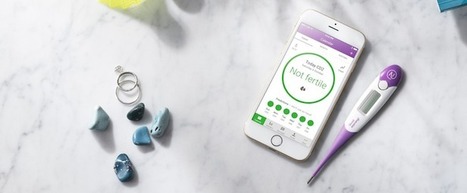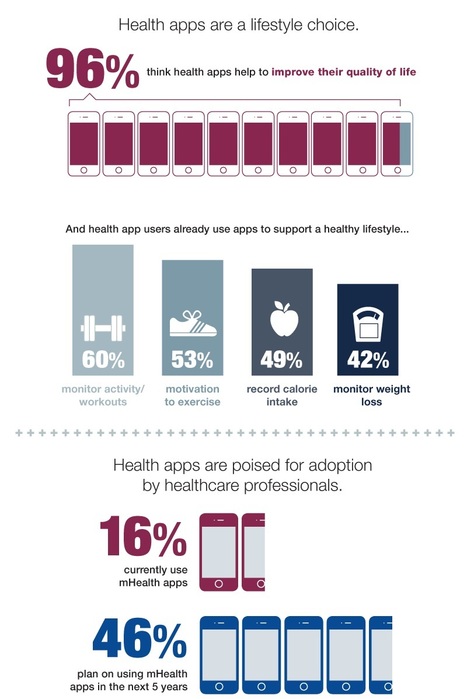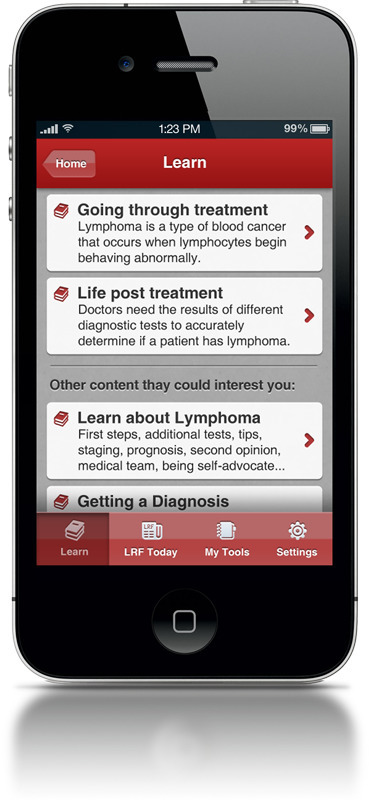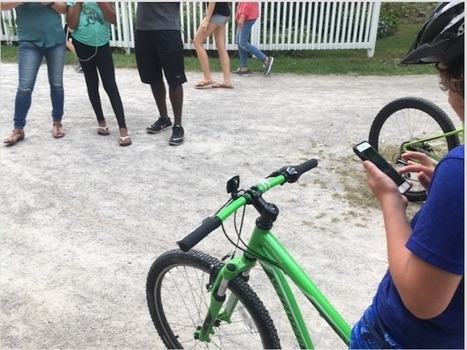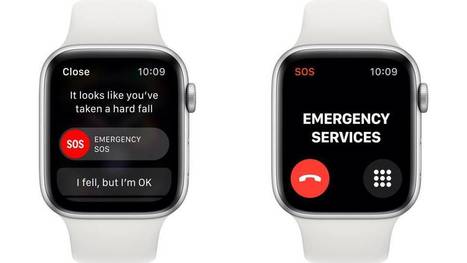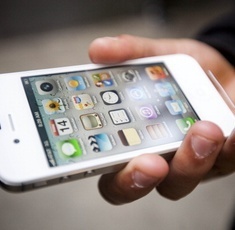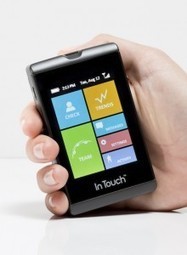 Your new post is loading...
 Your new post is loading...

|
Scooped by
nrip
|
- The world's largest technology companies have all hired well-known cardiologists.
- Heart disease and high blood pressure affect a large number of people, are well-understood, and there's evidence that consumer products can help.
Big Silicon Valley companies have often competed for talent with specialized skills, like expertise in artificial intelligence or trendy new programming languages. Now they're competing for heart doctors. Apple, Alphabet, and Amazon have all hired well-known cardiologists. This might just be a coincidence. Cardiologists tend to be well educated and hard working, and big tech companies have a track record of recruiting such people. In recent years, all of these companies have started to invest in products and devices that are targeted to millions of people who could benefit by tracking their heart health. Apple's smartwatch now includes an electrocardiogram, which can detect heart rhythm irregularities. Verily's study watch, which is designed for clinical trial research, also tracks heart rate and heart rhythm, and it's doing a lot of work in chronic disease management. So the more likely explanation is that tech companies are interested in health care, and they have all come to the conclusion that cardiology should be an early (if not initial) target. Here's why. It's a huge potential market Heart disease is the No. 1 killer in the world, and strokes are among the leading causes of death. And that's not all that cardiologists treat. "Our scope covers other common disease such as high blood pressure, which impacts about a third of people in the U.S. — 75 million Americans — as well as lipid and cholesterol disorders," said Dr. Mo Elshazly, a cardiologist and assistant professor of medicine at Weill Cornell Medicine. Many cardiologists are also experts in nutrition and exercise science, which impacts a huge number of people who are committed to staying healthy. That's useful for the teams within the largest tech companies that are more focused on wellness and fitness applications, rather than on health and medical. Alphabet has Google Fit. Apple has a fitness group for its Apple Watch. And Amazon is looking at health and wellness applications for its Alexa voice assistant. It's well-studied Cardiology is among the most-studied fields in medicine, meaning there's already a lot of evidence to understand the root causes of heart disease, as well as how to prevent it. That's attractive for tech companies, which tend to base their development decisions on data. Their consumer products are already making a difference Let's take Apple, as an example. The company launched its first Apple Watch model with a heart rate sensor, never expecting that people would use it to discover they were pregnant, at risk for a heart attack or experiencing a dangerous irregular heart rhythm. But as people began sharing examples of how the Apple Watch saved their life, the company started to invest heavily in the science and technology to drive more of these stories. A lot of that work culminated in the first-ever clearance for a heart rhythm sensor called an ECG for Apple Watch earlier in the summer. read more at https://www.cnbc.com/2018/10/17/what-every-tech-company-needs-a-cardiologist.html

|
Scooped by
nrip
|
Studies show that Cognitive Behavior Therapy for Insomnia (CBT-I) delivered digitally through mobile phone apps is effective in treating insomnia. Like a real therapist, the apps that use Cognitive Behavior Therapy for Insomnia (CBT-I) also provide practical tools to help the user worry less about their sleep and over time, be less anxious and more confident about their ability get a good night's rest. It's very similar to what physicians do face-to-face with patients, And a recent study of Sleepio by Ong and the team that developed the product found that participants who used the product reported an improvement in insomnia symptoms and overall wellbeing. However, these apps don't work for everyone. The recent study hints at why. Less than 50 percent [of people who were assigned to use the app in a randomized controlled trial] are able to make it through the entire course of CBT delivered through digital platforms, For some people it may be hard to make it through all the sessions of CBT. This is true of most health and wellness apps. In other studies it has been found that of the 10,000 mental health apps out there, very few are actually being used. We dont really understand how people are using technology towards their health and recovery, But in some ways, he says, people with insomnia may be ahead of scientists in figuring out what works well for them. read the original unedited piece at https://www.npr.org/sections/health-shots/2018/10/08/654883409/some-apps-may-help-curb-insomnia-others-just-put-you-to-sleep

|
Scooped by
nrip
|
Digital health is rapidly changing our lives. Almost every day, new developments using data, artificial intelligence and smartphones to improve health, on individual and population levels, are entering the market. In 2015, there were more than 40,000 healthcare apps on Apple's U.S. App Store alone. And the number has kept growing.
But in the process of delivering the next revolutionary technology, health-tech innovators have often neglected to include usability in their apps so that they may also benefit people with disabilities, research suggests
“People with disabilities have a particularly hard time, as they are often overlooked in the design of new technology, both regarding tools and content,” noted a report titled, “Health Inequalities in eHealth Context,” by the European Commission. “Due to their impairment, the notion of them being proficient (information and communications technology) users is often sidelined.”
So, what does this issue look like in the real world?
In August, the U.S. Food and Drug Administration approved the marketing of the first mobile health (mHealth) app for contraception: Natural Cycles. The app allows women to avoid pregnancy by monitoring their resting body temperature — known as the basal body temperature — and recording their data so that an algorithm can determine their daily fertility.
With “perfect use,” the app’s creators say the failure rate is 1.8 percent, which means that 1.8 in 100 women annually will become pregnant despite using the technology.
But although the app meets the FDA’s guidelines governing mHealth apps, Natural Cycles poses problems for some nontraditional eHealth users, including women who have disabilities or irregular periods. read the whole story at https://www.hcanews.com/news/natural-cycles-is-the-first-fdaapproved-contraception-app-but-its-not-for-all-women

|
Scooped by
nrip
|
A new survey shows 96% of mobile health application users and medical professionals believe mobile health apps "improve their quality of life."
Meanwhile, 86% of providers surveyed said mobile health apps will improve their knowledge of patients' medical conditions.
For the survey, researchers polled 1,000 mobile health app users and 500 medical professionals.
Overall, the survey found that 96% of surveyed mobile health users and medical professionals said that mobile health apps "improve their quality of life."
Among mobile health app users, the survey found: - 60% use apps to monitor activity/workouts (Gruessner, mHealth Intelligence, 6/12);
- 53% use apps as motivation to exercise;
- 49% use apps to record calorie intake; and
- 42% use apps to monitor weight loss (Research Now survey, June 2015).
Among surveyed health care professionals, the survey showed:
- 86% knowledge believe mobile health apps will increase their of their patients' medical conditions;
- 76% believe the apps will help patients with chronic disease management (mHealth Intelligence, 6/12);
- 61% believe the apps will help those who are at a high risk of developing health issues;
- 55% believe the apps could help healthy individuals stay healthy;
- 48% believe the apps could help patients recently discharged from a hospital; and
- 46% believe the apps will improve their relationship with their patients.
more at http://www.ihealthbeat.org/articles/2015/6/15/most-mhealth-app-users-providers-feel-apps-improve-quality-of-life

|
Scooped by
nrip
|
Mobile phones with operating systems and capable of running applications (smartphones) are increasingly being used in clinical settings. Medical calculating applications are popular mhealth apps for smartphones. These include, for example, apps that calculate the severity or likelihood of disease-based clinical scoring systems, such as determining the severity of liver disease, the likelihood of having a pulmonary embolism, and risk stratification in acute coronary syndrome. However, the accuracy of these apps has not been assessed. OBJECTIVE: The objective of this study was to evaluate the accuracy of smartphone-based medical calculation apps.
CONCLUSIONS: The results suggest that most medical calculating apps provide accurate and reliable results. The free apps that were 100% accurate and contained the most functions desired by internists were CliniCalc, Calculate by QxMD, and Medscape. When using medical calculating apps, the answers will likely be accurate; however, it is important to be careful when calculating MELD scores or Child-Pugh scores on some apps. Despite the few errors found, greater scrutiny is warranted to ensure full accuracy of smartphone medical calculator apps.

|
Scooped by
nrip
|
HealthTap published a survey of the top physician-rated apps for both iOS and Android, and breaks it down into 30 separate categories.
HealthTap founder and CEO Ron Gutman said the company's goal is to give clinicians and consumers a guide to choosing apps that have been approved by doctors, rather than resorting to the user ratings found in app stores (HealthTap's AppRx app, by the way, has a healthy 4.72 star rating in the Apple App Store, he said). The apps are judged on three standards – ease of use, effectiveness and medical accuracy, validity and soundness. They're not given a number rating, but are ranked solely based on how many doctors would recommend them.
Top 10 Health and Medical Apps for Android 1. Weight Watchers Mobile (Weight Watchers International) 2. White Noise Lite (TMSoft) 3. Lose It! (FitNow) 4. First Aid (American Red Cross) 5. RunKeeper – GPS Track Run Walk (FitnessKeeper) 6. Emergency First Aid/Treatment (Phoneflips) 7. Instant Heart Rate (Azumio) 8. Fooducate – Healthy Food Diet (Fooducate) 9. Glucose Buddy – Diabetes Log (Azumio) 10. Pocket First Aid & CPR (Jive Media)
Top Health and Medical Apps for iOS 1. Calorie Counter and Diet Tracker (MyFitnessPal.com) 2. Weight Watchers Mobile (Weight Watchers International) 3. Lose It! (FitNow) 4. White Noise Lite (TMSoft) 5. First Aid (American Red Cross) 6. Runkeeper (FitnessKeeper) 7. Stroke Riskometer (Autel) 8. Emergency First Aid & Treatment Guide (Phoneflips) 9. Instant Heart Rate (Azumio) 10. Fooducate (Foducate)
|

|
Scooped by
nrip
|
Pokémon GO illuminated the potential for mobile phone gaming apps to engage users and promote health. However, much work is needed to fully understand the mechanisms through which digitally supported behavior change interventions operate, particularly for children and families. Objective: The aims of this study were (1) to explore the Pokémon GO user experience from a family perspective and (2) to investigate Pokémon GO within the context of family health. Methods: Between January and February 2017, congruent with one of the largest anticipated Pokémon GO updates Gen 2, participants were recruited from parks, word of mouth, and social media to complete a Web-based survey. Participants were surveyed about family characteristics, interest, and experiences playing Pokémon GO and healthy lifestyle beliefs. Using a revised Godin Leisure-Time Exercise Questionnaire, a retrospective pre-post design assessed changes in parent physical activity (PA) before and after playing Pokémon GO. Pokémon GO transcended traditional understanding of digital health and uniquely reached across generations to engage users. Findings from this study highlight that, for a period of time, Pokémon GO fostered social and physical well-being for children and families through a multifaceted approach. read the study at https://pediatrics.jmir.org/2018/2/e10679/

|
Scooped by
nrip
|
It is projected that by next year, over 7.6 billion people throughout the world will use over 30 billion smart, sensor-based wearable devices that will monitor human activities, including mental-health data. Smartphones and wearable sensors are able to detect and analyze behaviors such as activity (by GPS, location, and speed); sleep hours (your total time in bed or asleep); and various brain functions through games prompted to test memory, executive capacities, emotions and moods. This will soon become the paramount source of obtaining health data with a special emphasis on mental health issues. Psychiatrists will be able to use these new technologies to identify a healthy person at risk by being able to analyze samplings of feelings, thoughts, and general behaviors as they occur in real time and in their real life. Well, there are reliability issues, problem of missing data, retention/adherence abilities, and subjects neglecting to wear or charge their devices after a certain period of time. The new learning algorithms of artificial intelligence technologies are able to integrate structured and unstructured data and should eventually be able to tackle these potential pitfalls. Read the original article at https://www.miamiherald.com/living/health-fitness/article219558560.html

|
Scooped by
nrip
|
After an initial diagnosis, diabetes sufferers often experience a period of shock when they learn that everything has to change. Turkish mobile operator, Turkcell, and agency R/GA London have created an app to make adjusting to the necessary life changes much easier.
Instead of trying to persuade sufferers to adopt entirely new habits, tools and behaviors to monitor the condition, "healthmetre" deploys Instragram, a tool many people already use and taps into behaviors that people already have.
R/GA designed healthmetre to be a more human way to manage diabetes and help patients develop new, more healthy habits in a way that feels natural and thereby, helping them reach a level of consistency.
The idea is to make using the app as simple as possible, helping people stay motivated, complying with treatment and keeping the lines of communication with medical staff open.
Diabetes is an increasing problem across the world and Turkey has been particularly affected. The most recent statistics (2014) from the International Diabetes Federation show that Turkey has the highest rate of the illness in Europe, with an incidence of 14.7%, much higher than countries like, for example, the U.K. (5.4%) or mid-ranked Germany (7.9%).
The results of the 18-month trial are highly encouraging. Treatment compliance increased by 54%. Blood sugar levels decreased by 27% and complication forecasts decreased by 37%.
more at http://www.fastcocreate.com/3047389/a-new-app-to-make-life-easier-for-diabetics-using-instagram

|
Scooped by
nrip
|
The market of mobile health (mHealth) apps has rapidly evolved in the past decade. With more than 100,000 mHealth apps currently available, there is no centralized resource that collects information on these health-related apps for researchers in this field to effectively evaluate the strength and weakness of these apps. Objective The objective of this study was to create a centralized mHealth app repository. We expect the analysis of information in this repository to provide insights for future mHealth research developments. Methods We focused on apps from the two most established app stores, the Apple App Store and the Google Play Store. We extracted detailed information of each health-related app from these two app stores via our python crawling program, and then stored the information in both a user-friendly array format and a standard JavaScript Object Notation (JSON) format. Results We have developed a centralized resource that provides detailed information of more than 60,000 health-related apps from the Apple App Store and the Google Play Store. Using this information resource, we analyzed thousands of apps systematically and provide an overview of the trends for mHealth apps. Conclusions This unique database allows the meta-analysis of health-related apps and provides guidance for research designs of future apps in the mHealth field.

|
Scooped by
nrip
|
New survey data from digital health agency Klick Health shows that diabetes patients who use digital tools to manage their health also feel healthier.
Klick Health employed Survey Sampling International (SSI) to poll 2,000 American adults with diabetes either online or via the telephone.
Based on responses about how they use technology to manage their health, they segmented the group into three categories: those who manage their health daily or weekly with integrated digital technologies (integrators), those who go online to seek health information on a monthly basis (seekers), and those who don’t use the internet to manage their health at all (traditionalists).
The integrators group, the true digital health users, made up just 18 percent of the sample, but 13 percent of integrators reported being in excellent health. Seekers made up 47 percent of the sample and 4 percent of seekers said they were in excellent health. Finally, the remaining 35 percent were traditionalists, and only 2 percent of that group reported being in excellent health.
Because it’s a survey based on self-reported health status, the data doesn’t prove that connected patients are actually healthier than non-connected patients. But it does provide evidence that either they’re healthier or they believe they’re healthier, which is significant in and of itself. Nineteen percent of patients reported using mobile technology for a health-related activity. Of these, most wanted more data-driven interactions with their doctors. Two-thirds said they would like an app to remind them to take their medication, 75 percent wanted apps to connect them with their doctors, and 78 percent were open to sharing personally-collected health data with their doctors.
Overall, 80 percent of the mobile connected group were interested in having an app recommended to them by their doctor.
more at http://mobihealthnews.com/40600/survey-diabetes-patients-who-use-digital-tools-self-report-better-health/
|



 Your new post is loading...
Your new post is loading...



